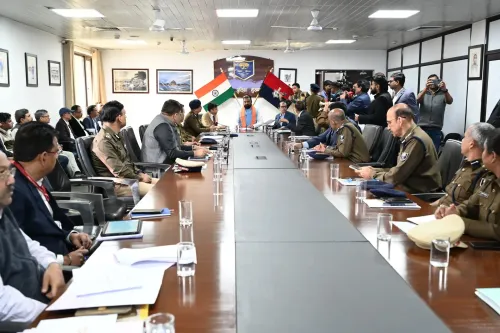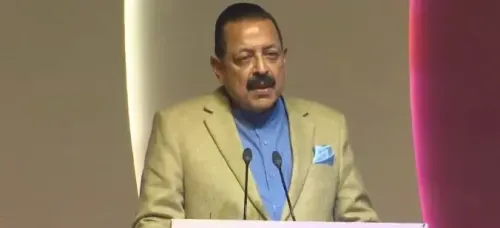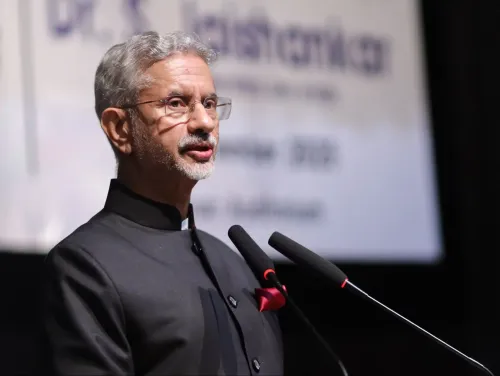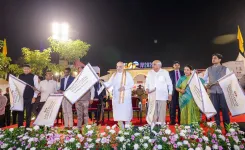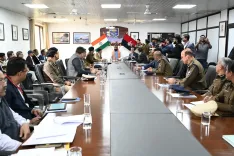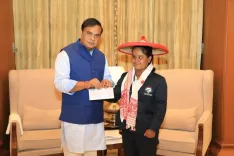How is RSS Chief Advocating for Gender Equality and Women’s Leadership?
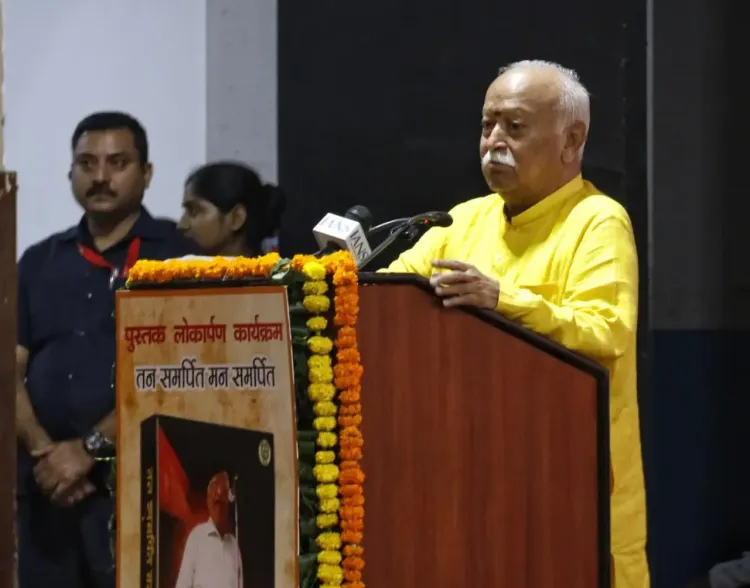
Synopsis
Key Takeaways
- Women are essential in leadership roles.
- Empowerment of women is crucial for national progress.
- Real change requires action and mindset shifts.
- Inclusivity is vital for societal transformation.
- Leadership must embody these ideals to inspire others.
New Delhi, Aug 18 (NationPress) In a notable commentary on societal evolution and the dynamics of gender, Rashtriya Swayamsevak Sangh (RSS) Chief Dr. Mohan Bhagwat has advocated for a more profound involvement of women in leadership and decision-making roles, both within the Sangh and in the wider civil community.
During the unveiling of the book, “Tan Samarpit, Man Samarpit,” Bhagwat highlighted that women are not merely equal contributors; they often serve as the catalyst for significant transformation.
“In Jaipur, when I was questioned about the number of women in the Sangh, I responded that at the very least, the count of women is equivalent to our swayamsevaks,” Bhagwat stated, emphasizing the increasing role of women in pivotal leadership positions and operational groups within the RSS.
“In every initiative aimed at societal welfare, men and women collaborate harmoniously. Even within the core group, leadership positions are occupied by women.”
Bhagwat’s statements resonate with his recent remarks in Solapur, Maharashtra, where he called for the emancipation of women from outdated customs and traditions.
“Empowering women is vital for national advancement,” he asserted. “God has endowed women with all the attributes He has given to men—and often more. Women can accomplish everything men can, and frequently more.”
He emphasized that genuine change is not born from mere slogans or speeches but through real-life examples.
“Knowledge alone does not effect change. Transformations must arise from action, which necessitates a shift in mindset,” he remarked.
“Volunteers must live these ideals so that others can witness and emulate them.”
Bhagwat also contemplated the legacy of early pracharaks who operated under challenging circumstances, motivated not by fame but by a lifestyle centered on service.
“Ideals resemble stars—we may not reach them, but they illuminate our journey,” he expressed. “To traverse that journey, individuals need relatable guides who exemplify these principles.”
His comments signify a notable shift in the traditional narratives of the RSS, highlighting inclusive leadership, family involvement, and the transformative potential of women-led initiatives.
With the Sangh gearing up for its centenary celebrations in October 2025, Bhagwat’s vision seems to be steering the organization towards a more engaged and socially responsive future.



